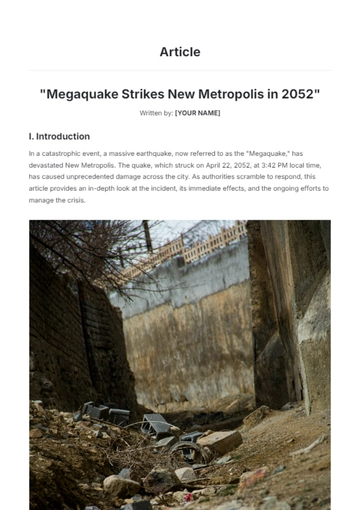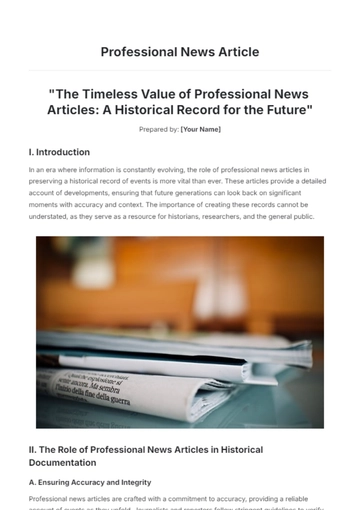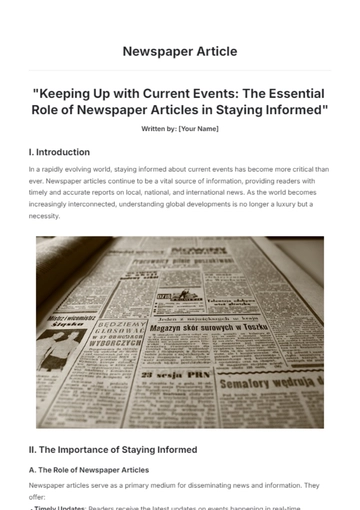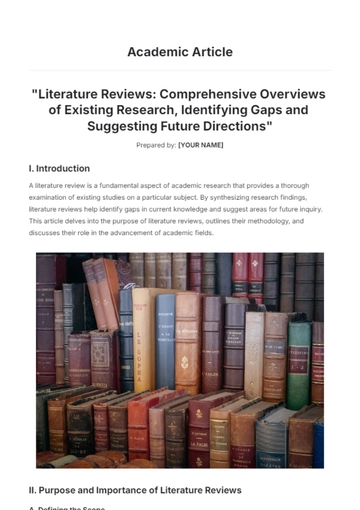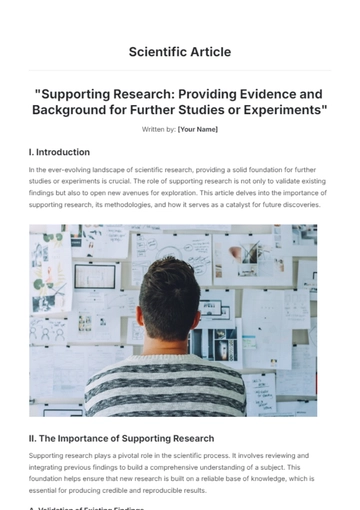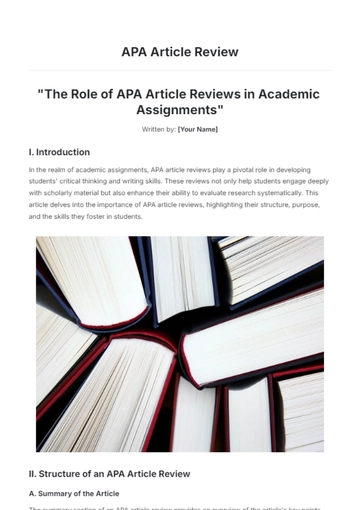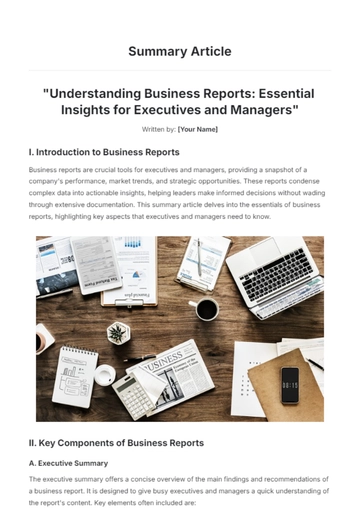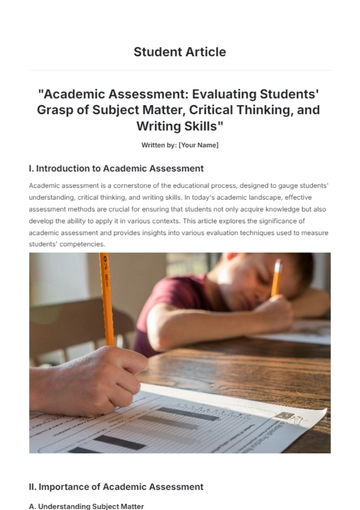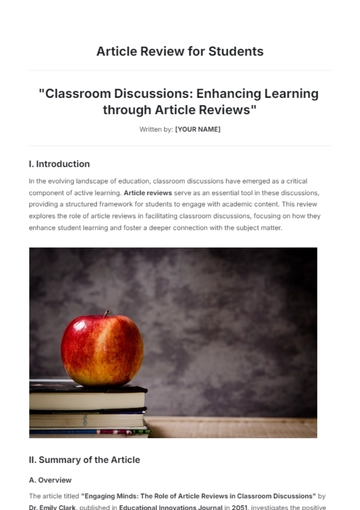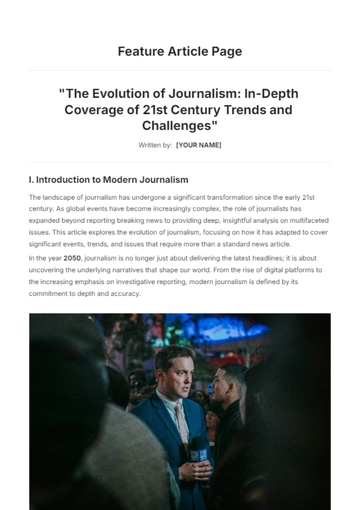Free Thematic Journal Article
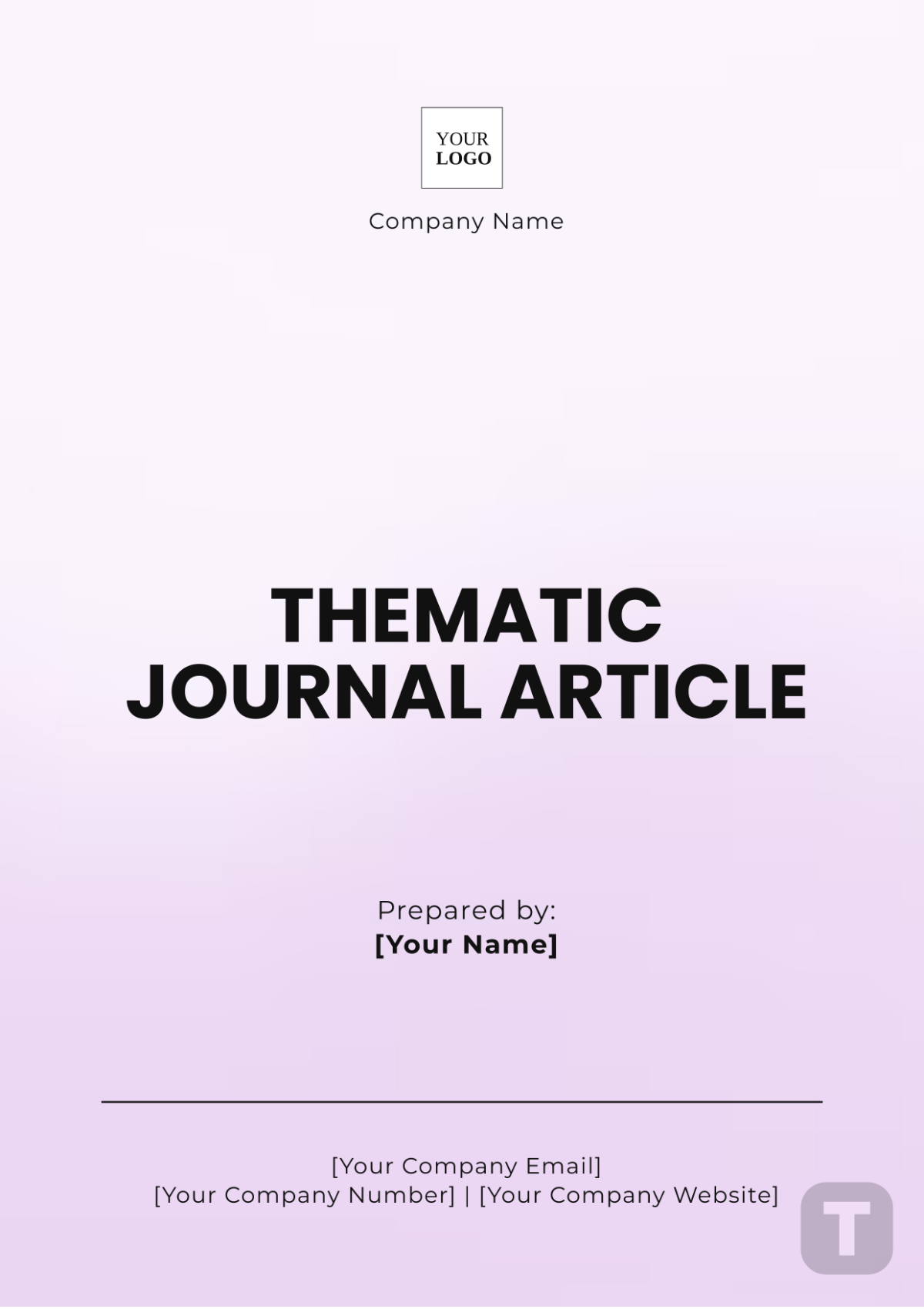
Title: A Comprehensive Analysis of Climate Change Impacts on Coastal Ecosystems
Prepared by: [Your Name]
Date: [Date]
I. Abstract
Climate change poses significant threats to coastal ecosystems, influencing biodiversity, habitat structure, and ecological functions. This article critically examines the multifaceted impacts of climate change on coastal regions through an extensive review of current literature, comprehensive analysis of case studies, and interpretation of recent research findings. The paper aims to contribute to the body of knowledge by presenting a detailed synthesis of how rising sea levels, temperature variations, and ocean acidification affect coastal ecosystems and offers insights into potential mitigation and adaptation strategies.
II. Introduction
Coastal ecosystems are dynamic environments characterized by their proximity to the sea, which subjects them to unique environmental pressures. As climatic patterns shift globally, these regions face unprecedented challenges. This article aims to explore the specific impacts of climate change on coastal ecosystems, emphasizing the need for robust scientific inquiry and effective management strategies to safeguard these vital habitats.
III. Literature Review
Extensive research has highlighted the vulnerability of coastal ecosystems to climate change. Studies by Smith et al. (2060) reveal significant alterations in species distribution due to rising temperatures, while Johnson and Chen (2059) discuss the exacerbation of coastal erosion by sea-level rise. The Intergovernmental Panel on Climate Change (IPCC) reports further underscore the increasing severity of ocean acidification, detailing its adverse effects on marine biodiversity (IPCC, 2051). This review consolidates key findings from these and other pivotal studies to provide a comprehensive foundation for understanding the scope of climate change impacts on coastal ecosystems.
IV. Methodology
This study employs a mixed-methods approach, integrating quantitative data analysis with qualitative case study evaluations. Data sources include satellite imagery, historical climate records, and species population surveys. Additionally, the research synthesizes findings from peer-reviewed articles, government reports, and field observations. The combination of these methodologies allows for a holistic examination of climate-induced changes across various coastal ecosystems globally.
V. Results/Findings
The analysis reveals several key trends:
Rising Sea Levels: Coastal regions are experiencing accelerated erosion and habitat loss, particularly impacting wetlands and mangrove forests.
Temperature Variations: Altered thermal conditions are affecting species migration and breeding patterns, leading to changes in ecosystem composition.
Ocean Acidification: Increased CO2 levels are causing a decline in calcifying organisms, which plays a crucial role in maintaining marine biodiversity and fishery yields.
VI. Discussion
The findings corroborate the established scientific consensus on climate change impacts, providing solid evidence of the rapid transformations occurring within coastal ecosystems. These changes pose significant risks to biodiversity and the livelihoods of communities dependent on coastal resources. The discussion also explores adaptive management practices, such as habitat restoration, the establishment of marine protected areas, and the integration of climate resilience into coastal development planning. Furthermore, it emphasizes the need for enhanced interdisciplinary research to develop comprehensive mitigation strategies.
VII. Conclusion
In conclusion, climate change significantly endangers coastal ecosystems, with profound implications for biodiversity, ecological functions, and human communities. Urgent and sustained efforts are required to mitigate these impacts through adaptive management and policy interventions. This article underscores the importance of continued research to enhance our understanding and capabilities in addressing the challenges posed by a rapidly changing climate.
VIII. References
Intergovernmental Panel on Climate Change (IPCC). (2051). Climate Change 2051: The Physical Science Basis.
Johnson, L., & Chen, R. (2059). Impacts of Rising Sea Levels on Coastal Erosion: A Review. Journal of Coastal Research, 85(3), 545-560.
Smith, P., et al. (2060). Changing Climate, Shifting Species: A Review of Climate-driven Alterations in Coastal Ecosystems. Marine Ecology Progress Series, 1044, 1-25.
- 100% Customizable, free editor
- Access 1 Million+ Templates, photo’s & graphics
- Download or share as a template
- Click and replace photos, graphics, text, backgrounds
- Resize, crop, AI write & more
- Access advanced editor
Introducing Template.net’s Thematic Journal Article Template provides an editable and customizable format for presenting research on specific themes or topics. Designed for clear organization and a professional appearance, it can be easily tailored using our Editable in our Ai Editor Tool. Perfect for researchers across fields, this template simplifies journal article preparation and ensures a polished result.
